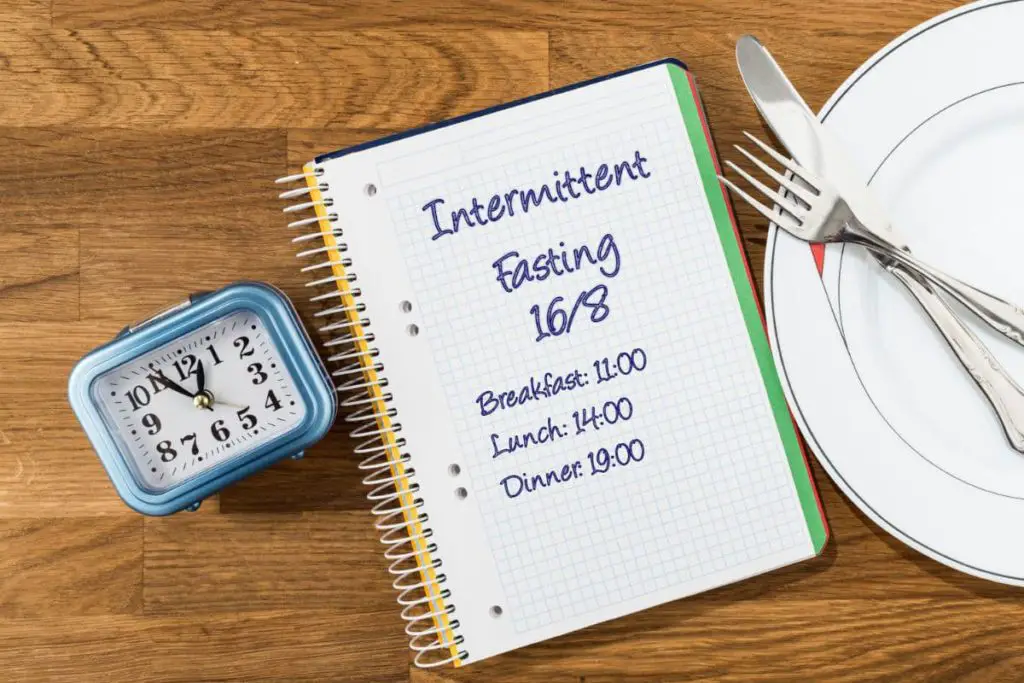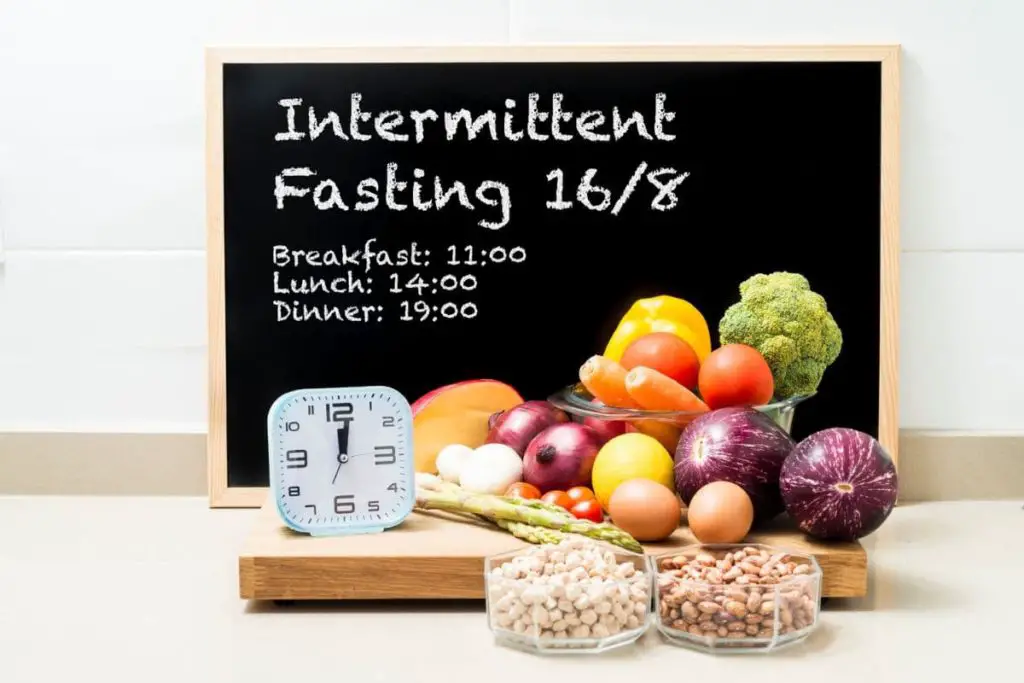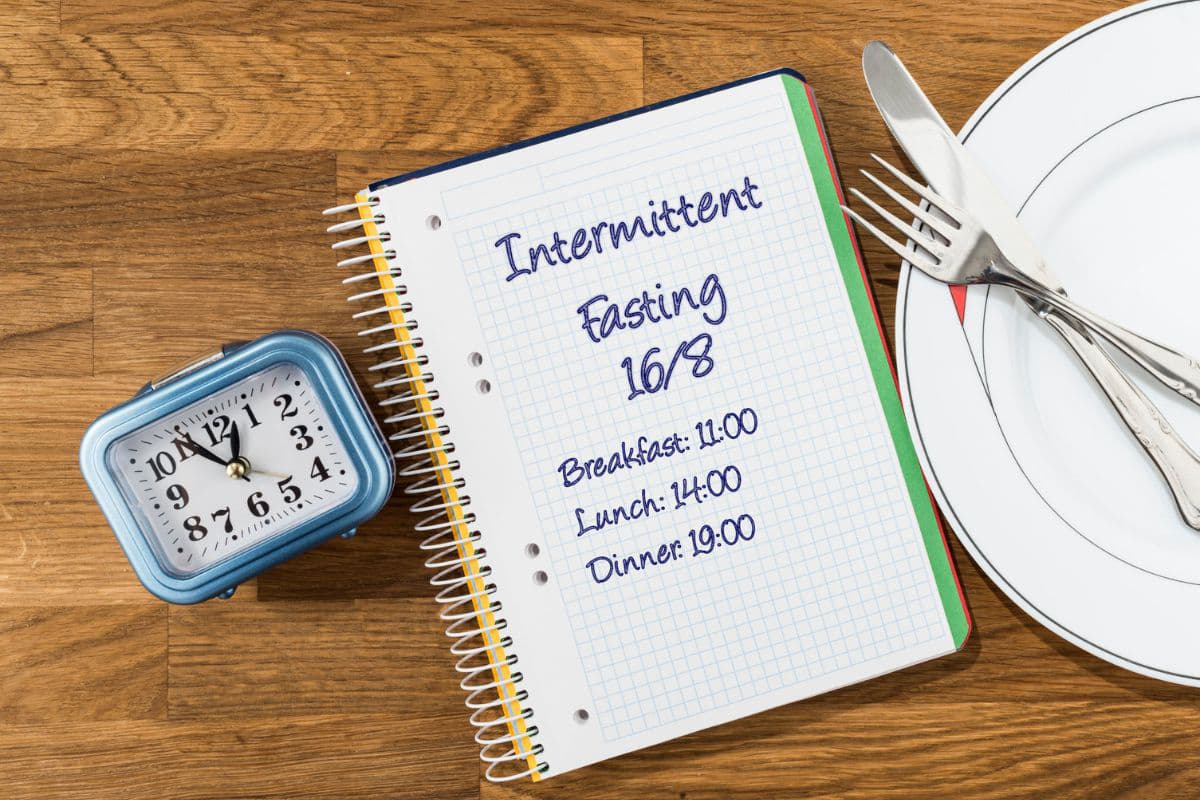If you’re overweight and want to lose weight quickly, intermittent fasting can be a great way to kickstart your weight loss journey. However, you’ll need to fast several days a week to see notable changes. So, is intermittent fasting effective 5 days a week?
Intermittent fasting is effective 5 days a week because it increases HGH (human growth hormone) and lowers insulin levels in the body, which help in long-term fat burning and weight loss. However, its effectiveness depends on the type of intermittent fasting.
In the rest of the article, I’ll discuss how intermittent fasting works, the types you can try for five days a week, and useful endurance tips. Continue reading to learn more.

How Does Intermittent Fasting Work?
You’re probably wondering how intermittent fasting helps in weight loss and has health benefits, such as promoting cardiovascular health and slowing aging.
Intermittent fasting works by allowing the body to use its fat reserves as an energy source when glucose, the body’s primary fuel source, is either scarce or unavailable. This occurs when food intake is restricted for a certain period.
According to a study, intermittent fasting is a great choice for a healthier lifestyle for people looking to lose a considerable amount of weight.
Types of Intermittent Fasting
There are many different types of intermittent fasting, but I’ll go over a couple you can practice for at least five days a week to achieve the best results. Additionally, there’s no perfect fasting plan since it all comes down to personal preferences.
Time-Restricted Fasting
Time-restricted fasting allows you to set fasting and eating windows, giving you the flexibility to control your eating habits. It’s one of the most popular fasting methods because it entails skipping breakfast and dinner and eating your meals during the day.
Here are two common time-restricted fasting strategies.
16:8 Fasting
The 16:8 method involves a 16-hour continuous fast followed by 8 hours of healthy eating. For example, if your last meal is at 7 PM, you’ll break your fast at 1 PM the next day.
During the 8-hour eating window, you should eat 1-3 meals while being mindful not to overeat or eat unhealthy foods that might reverse the health benefits.

12:12 Fasting
On the other hand, the 12:12 method calls for a 12-hour fast followed by 12 hours of eating only healthy foods.
For example, if your last meal was at 7 PM, you should break your fast the next morning at 7 AM. Like the 16:8 method, you’re free to choose 1-3 meals during the 12-hour eating window.
Eat-Stop-Eat Fasting
In the Eat Stop Eat approach, you refrain from eating for one or two days and consume calorie-free drinks like water, tea, or coffee.
For example, for a 1-day complete fast, if your last meal was at 7 PM on Monday, you’ll break your fast at 7 PM on Tuesday.
This type of fasting is quite challenging and may cause several health issues like irritability, headaches, or fatigue. That’s why eat-stop-eat fasting should only be carried out under a doctor’s supervision or authorization.
However, a good plan involves fasting for five days but not continuously. You can start fasting for two days and allow yourself one day to break your fast. Do this at least twice a week and fast on either Saturday or Sunday to make it five days a week.
Tip: Try time-restricted fasting before choosing the eat-stop-eat method because it takes time to transition and poses several health risks.
Meal Skipping Fasting
If you’re a beginner, meal skipping is a great fasting option, which doesn’t focus on the number of food-restricted hours like the other two types above.
For example, you can skip breakfast one day, dinner the next day, or vice versa.
As a result, you have the freedom to decide which meals to skip in a day, depending on your hunger levels or duration. The goal is to eat nutrient-dense foods low in calories to put your body in a calorie deficit and cut off some extra pounds.
How To Survive Intermittent Fasting 5 Days a Week
You’ll need to adopt a few survival or endurance tips to practice intermittent fasting five days a week and stay on track to reap all the health benefits.
Let’s look at a few tips for surviving intermittent fasting.
1. Count Your Calories
Calorie counts are important since you need to be conscious of how many calories you’re consuming during the non-fasting periods to prevent regaining the lost weight.
You should consume nutrient-dense foods with healthy fats, fiber, and protein to compensate for the lost nutrients during the fasting phase. You’ll speed up your metabolism, promoting fat burning during non-fasting days.

2. Stay Hydrated
Drinking plenty of water helps reduce hunger levels because you may frequently confuse thirst for hunger when fasting. By staying hydrated, you can eliminate mindless snacking at night and compulsive overeating since your stomach is always full of water.
You can also drink zero-calorie drinks such as unsweetened coffee, herbal tea, and flavored sparkling water to prevent dehydration while intermittent fasting.
3. Keep Yourself Busy
The busier you’re, the less likely you are to obsess over unhealthy foods like junk and processed foods. Also, avoid strenuous activities or exercises on fasting days because you’ll need to compensate for the lost energy through unplanned eating.
The following are a few easy activities that will help you stay busy and active.
- Reading a book.
- Listening to music or podcasts.
- Watching a movie.
- Practicing yoga.
- Going for a walk.
4. Be Patient and Consistent
You must understand that intermittent fasting doesn’t work overnight, and it will take time before you can notice any physical changes. Your body needs to adapt before it can start using energy from fat reserves.
Stay consistent for an extended period and be patient enough as you wait for intermittent fasting to take effect and help you lose weight quickly.
Conclusion
There’s no single plan for intermittent fasting. Try different types to see which suits your preferences and lifestyle.
You can also use our above intermittent fasting methods to lose weight and get in shape. Although intermittent fasting is effective five days a week, it’s highly advisable to consult with your doctor before taking up a long fasting routine.

